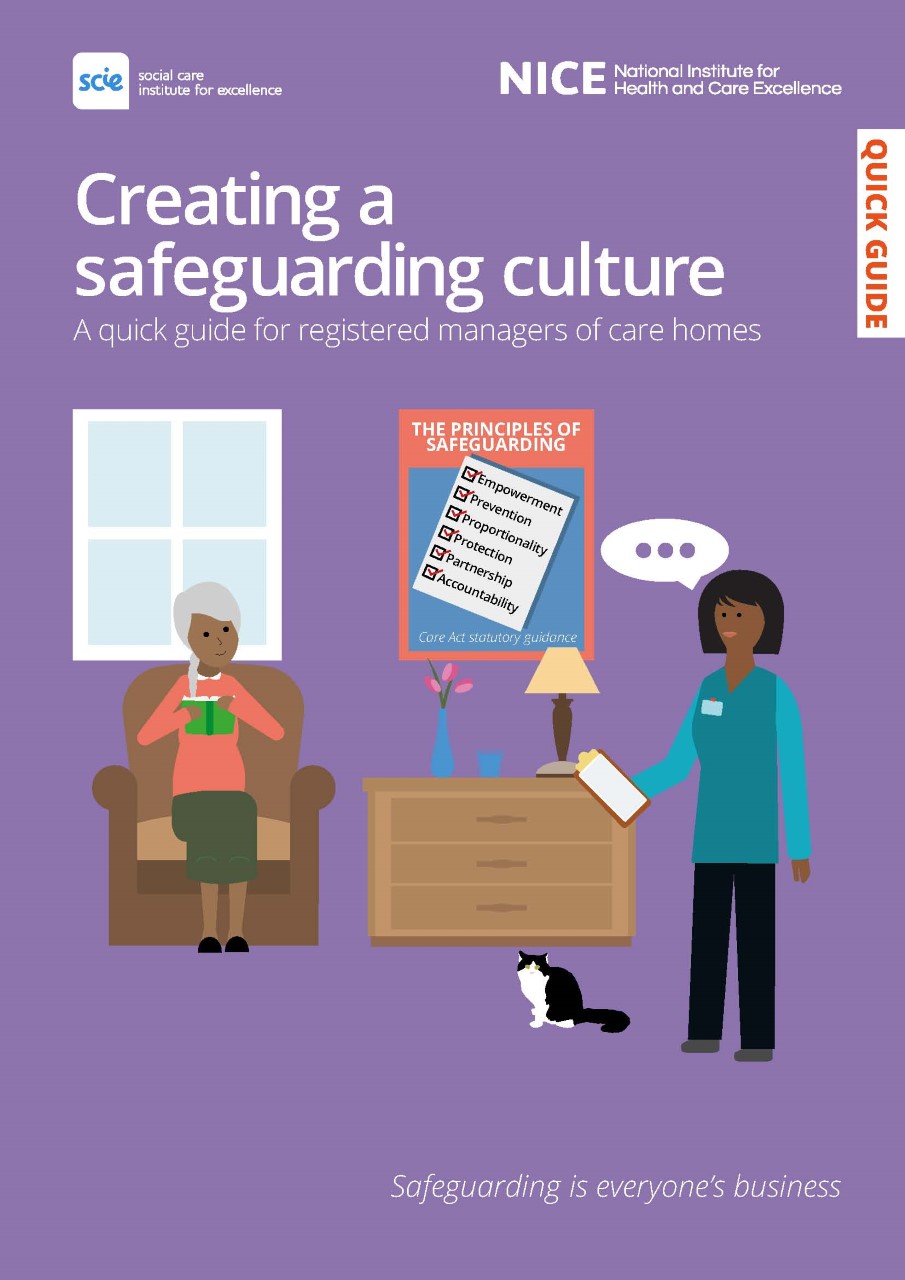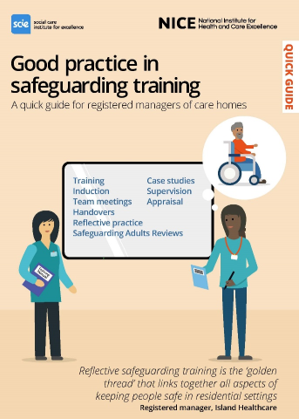
This blog has been written by Charlotte Goulding, Social Care Policy and Practice Support Manager, NICE. The National Institute for Health and Care Excellence (NICE) works with experts by experience and experts in practice to co-produce evidence-informed guidance to improve outcomes for people with social care and health needs.
The NICE Guideline
The NICE guideline, safeguarding adults in care homes, aims to increase awareness of safeguarding amongst staff working in care homes and ensure any concerns are reported appropriately. It also includes practical advice for residents, family, friends or professionals who may visit adults in care homes.
“Everyone should feel safe, secure and protected from harm in their own home. Living in a care home is no exception, especially when care home residents and family members trust and rely on staff to meet their individual support needs 24 hours a day.”
Sandra Murphy, Head of Adult Safeguarding at Cheshire East Council.
Visual Summaries of Indicators of Abuse and Neglect
The guidance includes a set of indicators to help practitioners identify abuse and neglect. It also advises staff on the actions they should take if they suspect abuse or neglect. These are available as one-page visual summaries for indicators of individual abuse and neglect and indicators of organisational abuse and neglect.
Registered managers of care homes may also be interested in the following quick guides which have been produced in partnership with the Social Care Institute for Excellence (SCIE) and summarise the guideline recommendations:
Creating a Safeguarding Culture
This quick guide explains how to develop a positive culture that encourages open conversations about safeguarding within care homes. It includes advice on:
- safeguarding policy
- systems and procedures
- whistleblowing
- roles and responsibilities.
- management and supervision.
Good Practice in Safeguarding Training
This quick guide provides advice on delivering safeguarding training to staff working in care homes. It’s designed to help everyone work together to prevent abuse and neglect. It includes:
- the role of the registered manager
- delivering training
- e-learning
- what to cover in mandatory training.

Other NICE Safeguarding Resources
NICE has other quick guides which may be helpful to staff working with people who have experienced abuse or neglect, including domestic abuse or child abuse:
- Recognising and responding to domestic violence and abuse – a quick guide for social workers.
- Getting help to overcome abuse – a quick guide for young people receiving support after abuse.
- Therapeutic interventions after abuse and neglect – a quick guide for practitioners and managers supporting children, young people and families after abuse and neglect.
Find Out More
For more information about our advice and guidance on adult social care, visit our social care web page.
To stay up to date with NICE’s work in social care register to receive our monthly social care newsletter.
